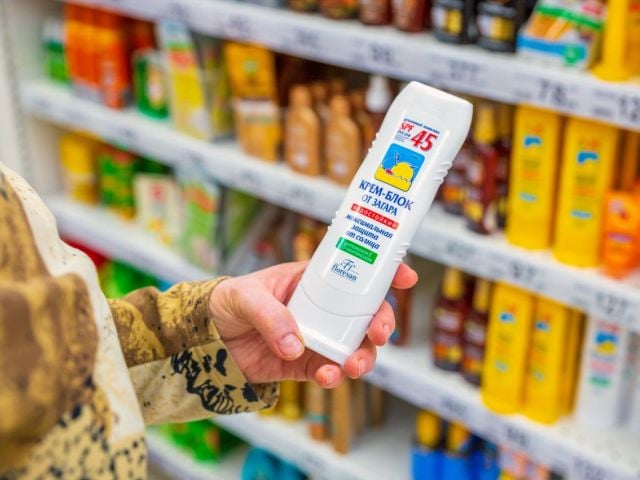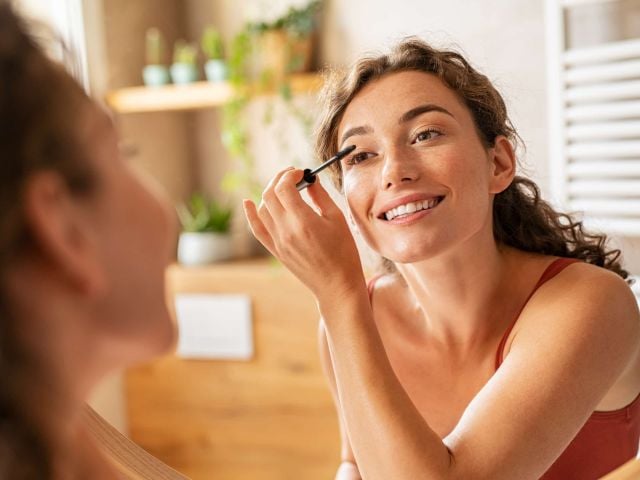WASHINGTON – On March 1, the European Union’s ban of the fragrance ingredient butylphenyl methylpropional, or lilial, went into effect.
In 2020, the EU’s European Commission classified lilial as a “reprotoxic,” a chemical that adversely affects fertility and fetal development, ruling it “cannot be considered as safe.” The EU set the March 1 deadline for all cosmetics with lilial to be pulled off store shelves.
Lilial’s use isn’t limited to personal care products. It’s also used as a fragrance ingredient in household cleaners and detergents, but the EU ban affects personal care products only.
Why is lilial used in consumer products?
Lilial is used to add floral notes in a fragrance mixture. It also can be listed on product ingredient labels as p-BMHCA. It scores red in EWG’s Skin Deep® database, which includes 1,216 personal care products containing lilial. These everyday consumer products include shampoo and conditioner, moisturizer, foundation, antiperspirants and shaving cream.
“The use of personal care products like cosmetics and fine fragrance is a critical but underappreciated source of exposure to chemicals linked to reproductive harm,” said Carla Burns, EWG senior director, cosmetic science. “Ingredients that may harm fertility have no business being used in cosmetics.”
At the end of 2020, researchers at EWG added lilial to the EWG VERIFIED® program’s list of unacceptable product ingredients.
The International Fragrance Association also limits the use of lilial in cosmetics.
Regulation of personal care products
The U.S. cosmetics industry is notoriously underregulated. For more than 80 years, Congress has neglected to increase the Food and Drug Administration’s authority over cosmetics, limiting the agency’s ability to ensure the safety of personal care products.
The Food, Drug and Cosmetic Act devotes only a couple of pages to cosmetics regulation, and the FDA has banned or restricted only nine ingredients in cosmetics for safety reasons.
“The public shouldn’t have to worry that they’re putting their own health at risk by doing something as routine and mundane as applying personal care products,” said Scott Faber, EWG senior vice president for government affairs. “Congress often focuses on the threat that will kill you tomorrow, rather than the threat that will kill you in 20 years.”
“The only way to adequately protect the public from toxic chemicals like lilial being used as ingredients in cosmetics is for Congress to step up and change the law or for states to ban this dangerous chemical,” Faber said.
Some states are not waiting for Congress or the FDA to act.
In September 2020, California enacted a landmark law banning 24 of the most harmful chemicals in personal care products. In June, Maryland enacted a similar law, barring the sale and manufacture of cosmetics and personal care products with certain ingredients, including the toxic “forever chemicals” known as PFAS.
In February, California Assemblymember Laura Friedman (D-Glendale) introduced Assembly Bill 2771 to ban PFAS from cosmetics and other personal care products sold in California.
Consumers who want to limit their exposure to lilial can use EWG’s Skin Deep database, Guide to Healthy Cleaners and Healthy Living app to find products that may contain lilial and choose options that don’t include it as an ingredient.
Update on 3/3/2022: The International Fragrance Association does not prohibit the use of lilial in cosmetics, but limits its use.
###
The Environmental Working Group is a nonprofit, non-partisan organization that empowers people to live healthier lives in a healthier environment. Through research, advocacy and unique education tools, EWG drives consumer choice and civic action.



